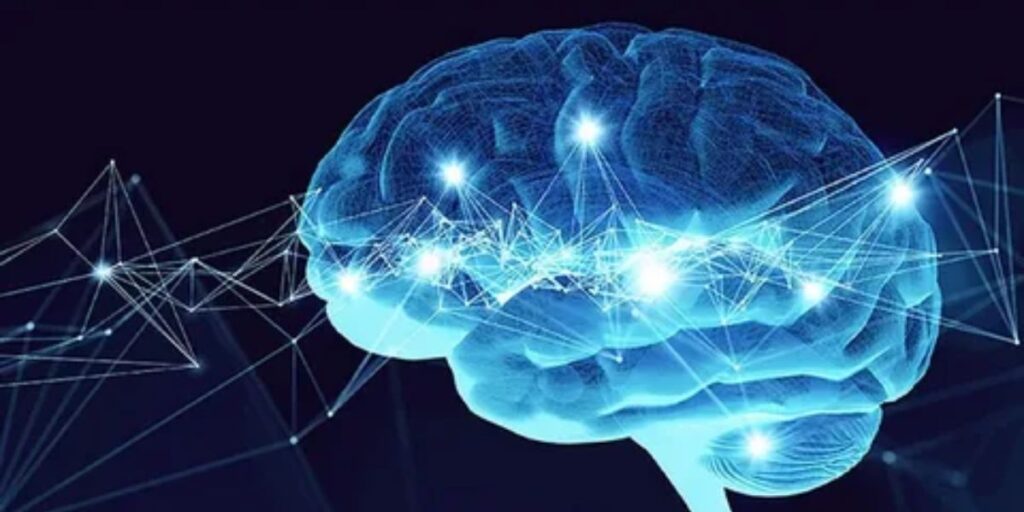Vertigo is far more than a mere medical condition or a fleeting moment of physical disorientation. It’s a profound spiritual communication system, a complex language of the body and soul that speaks volumes about our inner landscape.
When the world begins to spin, most people seek immediate medical explanation, but ancient wisdom and holistic approaches reveal a deeper, more nuanced narrative. Imagine your body as an intricate messenger, with each dizzy spell carrying a carefully encoded message about your spiritual journey, personal growth, and emotional well-being.
These moments of disorientation are not random occurrences but intentional interruptions designed to capture your attention and prompt deeper introspection.
The Holistic Understanding of Vertigo
Beyond Physical Sensation: A Spiritual Perspective
Vertigo transcends physical experience, emerging as a powerful signal from your innermost self. It’s a multidimensional experience that intertwines physical, emotional, and spiritual realms, creating a unique communication channel between your conscious and subconscious mind.
Spiritual Meaning of Vertigo: 8 Profound Insights
1. Transition: Navigating Life’s Spiritual Crossroads
Vertigo often manifests during significant life transitions, serving as a spiritual GPS recalibrating your direction. These moments aren’t random disruptions but intentional pauses, inviting you to examine your current path and future trajectory.
When you experience these dizzy spells, consider them spiritual checkpoints. They ask critical questions: Are you moving in alignment with your true purpose? Are you honoring your authentic self? The disorientation is less about physical balance and more about spiritual alignment.
2. Awakening: Expanding Consciousness Beyond Limits
Imagine vertigo as a cosmic alarm clock, suddenly jolting you into expanded awareness. These experiences push you beyond comfortable perceptions, revealing hidden layers of reality and consciousness.
During these moments, your spiritual perception expands. The world transforms from a flat, predictable landscape to a multidimensional experience rich with potential and mystery. You’re not just experiencing dizziness; you’re receiving an invitation to see beyond surface-level existence.
3. Imbalance: The Spiritual Recalibration Mechanism
Physical dizziness often mirrors internal spiritual misalignment. When your external actions deviate from your core values, vertigo becomes a powerful realignment tool. It’s your soul’s way of saying, “Something isn’t quite right. Let’s readjust.”
This spiritual imbalance manifests through physical symptoms, creating an undeniable signal that demands your attention. It’s a holistic warning system designed to bring your inner and outer worlds back into harmony.
4. Reflection: An Unexpected Meditation
Vertigo forces an unprecedented pause in your daily routine. Suddenly, the world stops, and you’re compelled to look inward. It’s an unexpected meditation, creating space for deep self-examination and honest introspection.
What dreams have you been neglecting? What aspects of yourself require nurturing and attention? These moments of disorientation are precious opportunities for profound personal discovery.
5. Growth: Embracing Transformative Challenges
Like a seedling struggling through dense soil to reach sunlight, vertigo symbolizes personal growth through challenge. These experiences indicate you’re expanding beyond previous limitations, pushing through spiritual and emotional barriers.
Growth isn’t always comfortable. Sometimes, it requires complete disorientation to help you recognize your true potential and resilience.
6. Change: Navigating Life’s Spiritual Turbulence

Vertigo signals imminent life transformations. It’s a preparatory mechanism, urging flexibility and resilience in the face of significant shifts. These experiences are cosmic nudges, indicating that radical personal reinvention is not just possible but necessary.
7. Alignment: Synchronizing Body and Soul
Consider vertigo your internal spiritual GPS, recalibrating your life’s direction. It ensures your actions, beliefs, and path remain harmoniously aligned with your most authentic self.
This alignment goes beyond mere physical balance—it’s about creating congruence between your innermost values and external expressions.
8. Renewal: Spiritual Cleansing and Rebirth
Vertigo can represent a powerful spiritual detoxification process. It helps you release outdated patterns, beliefs, and energies, making space for fresh beginnings and renewed purpose.
Biblical and Psychological Perspectives
Spiritual Meaning in Biblical Context
While scripture doesn’t explicitly discuss vertigo, numerous passages emphasize spiritual balance, faith during uncertainty, and trusting higher guidance through life’s challenges.
Psychological Interpretation
From a psychological standpoint, vertigo represents a profound intersection between mental and spiritual well-being. It signals the need to examine subconscious fears, unresolved desires, and emotional patterns seeking resolution.
Causes of Vertigo: Unraveling the Complex Triggers

Vertigo emerges from an intricate web of potential triggers, spanning medical, neurological, and holistic health domains. At its core, vertigo represents a complex interaction between your inner ear’s balance mechanism, brain processing, and overall physiological well-being. The causes range from inner ear infections and benign positional vertigo to more serious neurological conditions, hormonal imbalances, and even stress-induced physiological responses.
Symptoms of Vertigo
The hallmark of vertigo extends far beyond simple dizziness. Individuals experiencing vertigo often describe a profound sense of spinning, where either they feel like the world is rotating around them or they are moving when completely stationary. These sensations can be accompanied by additional symptoms such as intense nausea, loss of balance, sudden vision disruptions, hearing changes, persistent lightheadedness, unexplained sweating, and potential feeling of falling or being pulled to one side.
Treatment for Vertigo
Treatment approaches for vertigo are as diverse as its potential causes. Medical professionals typically design personalized treatment plans based on underlying triggers, which may include vestibular rehabilitation exercises, specific medication protocols, canalith repositioning maneuvers, balance-focused physical therapy, stress reduction techniques, and dietary and lifestyle modifications.
More on Brain & Nervous System Disorders
Vertigo frequently interlinks with various neurological conditions, revealing complex relationships between balance, brain function, and overall nervous system health. Neurological disorders like multiple sclerosis, brain tumors, stroke, and migraine variants can manifest vertigo as a primary or secondary symptom, highlighting the intricate connections within our neural networks.
Possible Causes
What Causes Vertigo?

Vertigo’s origins are multifaceted, encompassing inner ear disorders, viral infections, hormonal fluctuations, cardiovascular issues, neurological conditions, medication side effects, stress and anxiety, genetic predispositions, and metabolic imbalances.
What Are the Possible Complications of Vertigo?
Untreated or chronic vertigo can lead to significant complications including increased fall risk, chronic balance disorders, persistent mobility challenges, psychological distress, reduced quality of life, potential career and lifestyle limitations, and development of secondary anxiety disorders.
Care and Treatment
How Do Healthcare Providers Diagnose Vertigo?
Diagnosis involves comprehensive, multi-stage assessments including detailed medical history review, physical examination, neurological screening, balance and coordination tests, hearing and vision evaluations, specialized imaging (MRI, CT scans), vestibular function tests, and potential blood work and metabolic screenings.
When To Call the Doctor

When Should I See My Healthcare Provider?
Immediate medical consultation is crucial if vertigo occurs suddenly and unexpectedly, persists for extended periods, accompanies severe headaches, involves hearing loss, presents with neurological symptoms, interferes with daily functioning, causes persistent nausea or vomiting, or results in fainting or loss of consciousness.
Seek emergency medical attention if vertigo is accompanied by chest pain, severe headache, difficulty speaking, weakness or inability to move, sudden vision changes, or potential stroke symptoms.
Understanding vertigo requires a holistic approach, recognizing it as more than a simple balance disorder but a complex interplay of physiological, neurological, and potentially spiritual signals demanding comprehensive attention and care.
Frequently Asked Questions
How to Cure Vertigo Permanently?
- Comprehensive Medical Evaluation
- Holistic Healing Approaches
- Stress Reduction Techniques
- Spiritual Practice and Meditation
- Emotional Processing
Is Vertigo Dangerous?
While typically not life-threatening, persistent vertigo requires:
- Professional medical consultation
- Comprehensive health assessment
- Spiritual and emotional investigation
Conclusion: Embracing Your Spiritual Journey
Vertigo isn’t a curse—it’s an extraordinary invitation. An opportunity to pause, reflect, and realign with your most authentic self. By understanding its deeper meanings, you transform a challenging experience into a powerful tool for personal growth and spiritual evolution.
More Post:

Passionate about exploring diverse ideas and sharing inspiration, I curate content that sparks curiosity and encourages personal growth. Join me at ElementalNest.com for insights across a wide range of topics.
